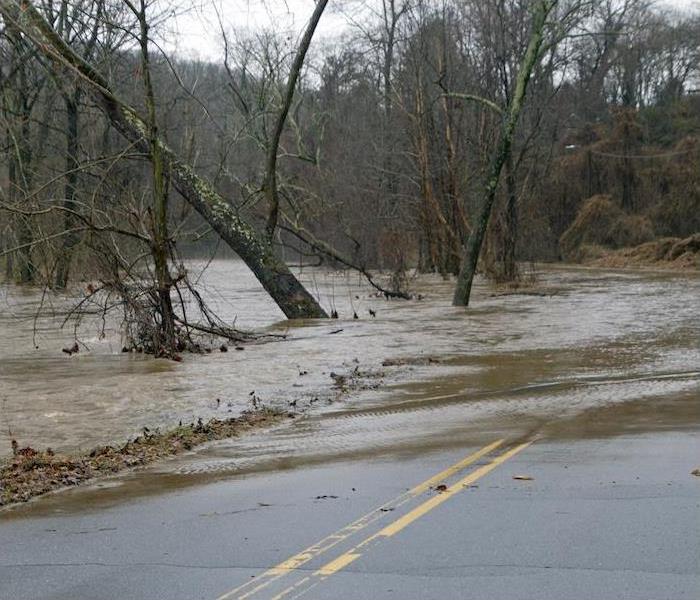A Look at What Makes Flash Floods Such a Dangerous Consequence of Storms | SERVPRO® of Fallbrook/South Oceanside
11/25/2020 (Permalink)
 SERVPRO of Fallbrook/South Oceanside is your local storm restoration expert. We will get the job done right, contact us today.
SERVPRO of Fallbrook/South Oceanside is your local storm restoration expert. We will get the job done right, contact us today.
Severe weather events of any sort should always be taken seriously, but when it comes to flash flooding, the extra concern is warranted. In the United States, the second-highest rate of weather-related deaths is due to floods, with flash floods being the most dangerous type of all the possible scenarios.
Flash floods are so dangerous in part because of the element of surprise—they can come about suddenly during or after heavy rainfall, and impact areas that are not the ones traditionally used to flooding. Because of how dangerous flash floods can be, we urge everyone to be aware of their dangers and understand how to take the proper precautions.
What Differentiates a Flash Flood From a Regular Flood?
Sustained periods of rainfall will lead to bodies of water such as lakes and rivers slowly rising with time, but with a flash flood, things happen much more quickly. Less than 6 hours between rainfall and flooding is what officially designates a flash flood, but many events happen in as little as three hours. Storm drains, drainage ditches and any other place where water can collect can create dangerous conditions.
How Will I Know if a Flash Flood Is Possible?
The limited notice that people receive in advance of flash floods is mainly what makes them so dangerous, but you can be better informed by paying attention to your local weather officials’ guidance.
When they issue a flash flood watch, that means it is a possibility and you should think through your evacuation plan. For a flash flood warning, you should execute your evacuation plan or get to high ground. If a flash flood emergency is declared, it is extremely serious and you should act rapidly to get to safety.
What Can I Do to Reduce My Overall Risk From a Flash Flood?
No matter the type of storm or severe weather event, safety is of chief concern—especially when flash floods are possible. Here are a few tips to always keep in mind just in case:
- Stay tuned in to local weather alerts if there is a chance of a storm or severe weather.
- Review your evacuation plan regularly with everyone in the household.
- Never walk or drive across floodwater on the road or on a path.
- Do not touch floodwater, as it can be significantly contaminated.
- Always have multiple routes for evacuating in case water blocks your pathway.
If your home or business has been damaged due to a flood or other severe weather, you can depend on us. Contact us at any hour to learn more about our services or to report damage to your property.






 24/7 Emergency Service
24/7 Emergency Service